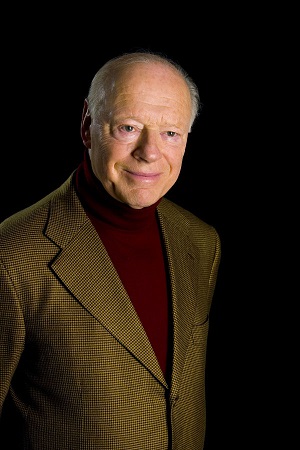 Switzerland Lucerne Easter Festival [2] – Mozart, Bruckner: Till Fellner (piano), Bavarian Radio Symphony Orchestra / Bernard Haitink (conductor), Kultur- und Kongresszentrum (KKL) Lucerne, 14.4.2019. (JR)
Switzerland Lucerne Easter Festival [2] – Mozart, Bruckner: Till Fellner (piano), Bavarian Radio Symphony Orchestra / Bernard Haitink (conductor), Kultur- und Kongresszentrum (KKL) Lucerne, 14.4.2019. (JR)

Mozart – Piano Concerto No.25 in C major K.503
Bruckner – Symphony No.6 WAB106
It just had to be Mozart and Bruckner to celebrate Bernard Haitink’s 90th birthday. A one-time resident of Lucerne, Haitink is revered and received here particularly warmly and the affection was palpable. The limelight, however, in the first half of this concert was on the soloist.
I had not seen Austrian pianist Till Fellner play before. He is a relatively young man and has clearly formed a close bond with Bernard Haitink. They share many of the same attributes: seriousness (though Fellner has a disarming smile), modesty, a lack of pretention, hype or show, and of course, most importantly, innate musicianship. His reading of one of the great Mozart piano concertos was, to use a cricketing analogy, straight down the middle of the pitch. He did not meddle with any of Mozart’s markings or tempi, it was as Mozart wanted it to be and much the better for that. There was no diversion to marvel at the performer’s technical prowess (evident as it was), we concentrated on the music. I could see why Haitink has taken to this young man, who in age could have been his grandson.
The concerto has long been overshadowed by its immediate companions, only more recently earning serious attention. It is the same vintage as the Prague Symphony and The Marriage of Figaro. The concerto has symphonic qualities; the orchestration encompasses the festive sounds of drums and trumpets, though Mozart omits the clarinet. The melodic writing captivated throughout, as did Fellner’s playing. My research on Till Fellner revealed he recently took a sabbatical to read extensively, write a book on the films of Luis Buñuel, and decidedly stay away from the piano, telling his agent he would only be interrupted if truly great conductors called – he gave in to Blomstedt, Honeck and Haitink.
Liszt visited Switzerland several times and one trip included the Walensee, a particularly beautiful lake situated between Zurich and the Grisons (Graubünden) and framed by high vertiginous mountains. Fellner’s delightful encore was Liszt’s Lac de Wallenstadt, played with the lightest of touches, and mastering some extreme stretches for fourth and fifth finger (apparently Liszt had extremely long fingers).
Haitink’s Bruckner is authoritative and masterly, even in his great age. He is economic with his movements now, of course, although the trademark clenched left fist remains to denote a wish for more power to be sustained, though the hand now is a mite shaky. Haitink managed to stand for much of the performance, only resorting to a stool from time to time, when the music relaxed. He was helped, without a doubt, by a magnificent orchestra, the Bavarian Radio Symphony Orchestra, and the perfect acoustics of the KKL. Bruckner’s Sixth has its weaknesses; it was one Bruckner never revised (though once or twice I wished he had, particularly to the puzzling and meandering final movement). When Mahler conducted the première in 1899, after the composer’s death, he made severe cuts. The work is extremely rhythmical and, typically for Bruckner, contains some glorious outbursts for the brass. I marvelled at the sound this orchestra could make. From close quarters, I evidenced their involvement and virtuosity in all sections.
The audience kept their eyes on the maestro as we all had an uneasy feeling we might not hear him again, live. I have been thinking that for many years, but now, seeing him emerge onto the stage, carefully avoiding falling over the violinists’ platforms, looking pale and frail, raising the faintest of smiles, using a walking stick at the end of the concert, I really wondered whether his imminent and self-inflicted sabbatical is actually likely to be an ending rather than an interruption. The concerts Haitink is conducting around Europe at the moment smack of a virtual farewell tour, though Haitink is scheduled to conduct Bruckner’s Seventh at the KKL at the Lucerne Summer Festival, with his old friend Murray Perahia. I sincerely hope he can do so because, in my eyes, Haitink’s Bruckner can do no wrong. Whenever he steps down from the podium for the very last time, he will be sorely missed.
John Rhodes